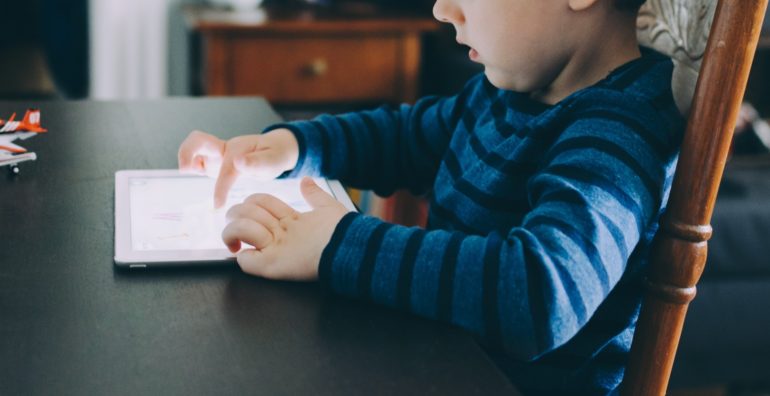A new national study finds that children in the United States with greater screen time usage at ages 9-10 are more likely to gain weight one year later.
The study, publishing in Pediatric Obesity on June 28, found that each additional hour spent on virtually all forms of screen time was associated with a higher body mass index (BMI) one year later. In particular, researchers found that each extra hour spent watching or streaming television, YouTube videos, video games, video chat, and texting led to a higher risk of weight gain one year later. At the start of the study, 33.7% of children were considered overweight or obese, and this increased to 35.5% one year later, a proportion that is expected to rise in the late teens and early adulthood.
BMI is calculated based on height and weight. Researchers analyzed the BMI z-scores, which is relative weight adjusted for a child’s age and sex, of 11,066 preteens who are part of the Adolescent Brain Cognitive Development Study, the largest long-term study of brain development in the United States. The children answered questions about their time spent on six different screen time modalities, including television, social media, and texting.
“Screen time is often sedentary and may replace time for physical activity. Children are exposed to more food advertisements and are prone to snacking and overeating while distracted in front of screens,” said lead author, Jason Nagata, MD, assistant professor of pediatrics at the University of California, San Francisco.
“A negative body image and subsequent overeating may be a result of exposure to social media and unattainable body ideals,” said senior author, Kyle T. Ganson, Ph.D., assistant professor at the University of Toronto’s Factor-Inwentash Faculty of Social Work. “This study emphasizes the need for more research on how screen time impacts the well-being of young people now and in the future.”
“The study was conducted prior to the COVID-19 pandemic, but its findings are especially relevant for the pandemic,” noted Nagata. “With remote learning, the cancellation of youth sports and social isolation, children have been exposed to unprecedented levels of screen time.”
“Screen time can have important benefits such as education and socialization during the pandemic, but parents should try to mitigate risks from excessive screen time including increased sedentary time and decreased physical activity. Parents should regularly talk to their children about screen-time usage and develop a family media use plan,” said Nagata.
Excessive social media use linked to binge eating in US preteens
More information:
Jason M. Nagata et al, Contemporary screen time usage among children 9–10‐years‐old is associated with higher body mass index percentile at 1‐year follow‐up: A prospective cohort study, Pediatric Obesity (2021). DOI: 10.1111/ijpo.12827
Provided by
University of Toronto
Citation:
Excessive screen time linked to obesity in US preteen (2021, June 28)
retrieved 28 June 2021
from https://medicalxpress.com/news/2021-06-excessive-screen-linked-obesity-preteen.html
This document is subject to copyright. Apart from any fair dealing for the purpose of private study or research, no
part may be reproduced without the written permission. The content is provided for information purposes only.



